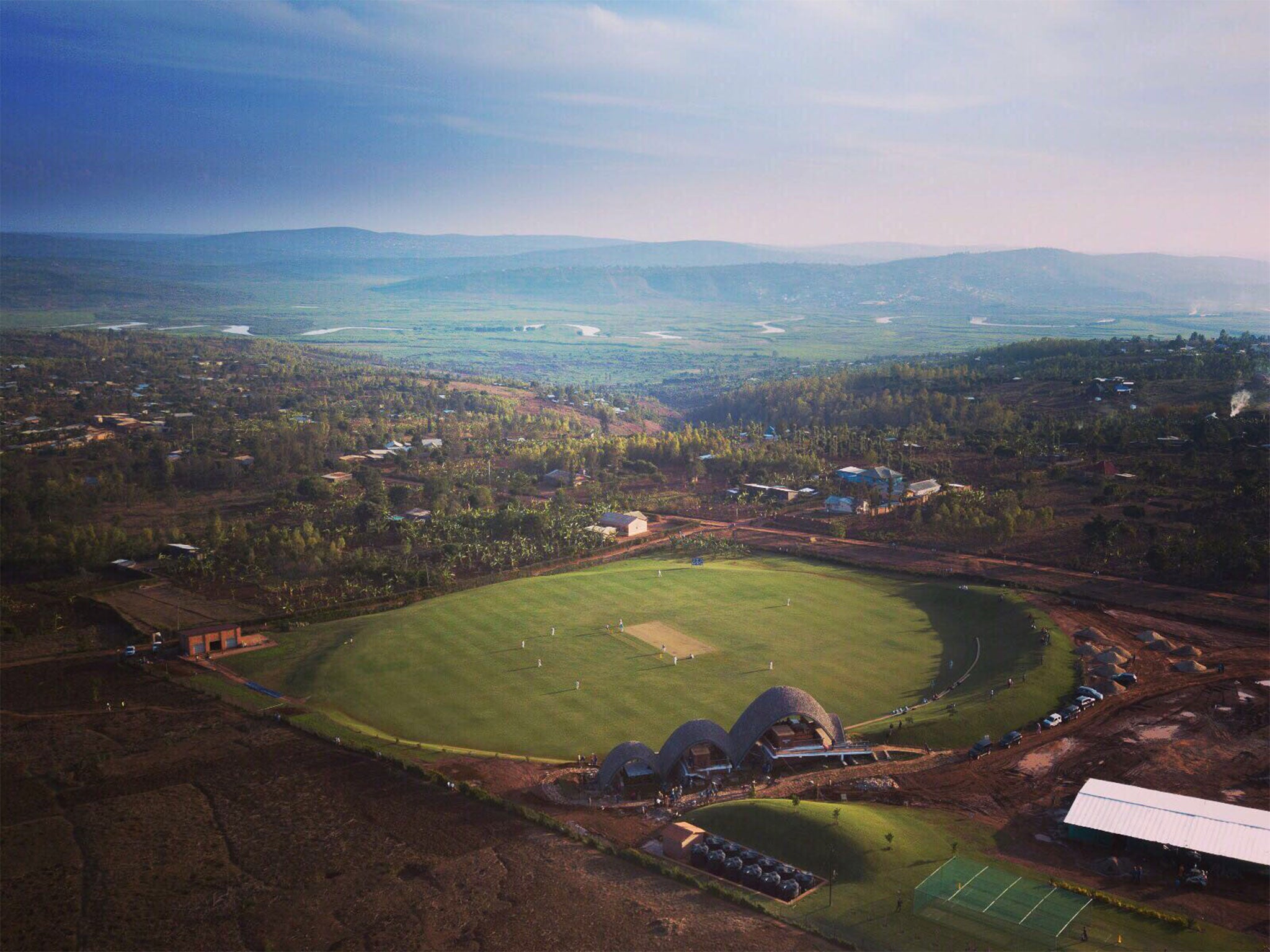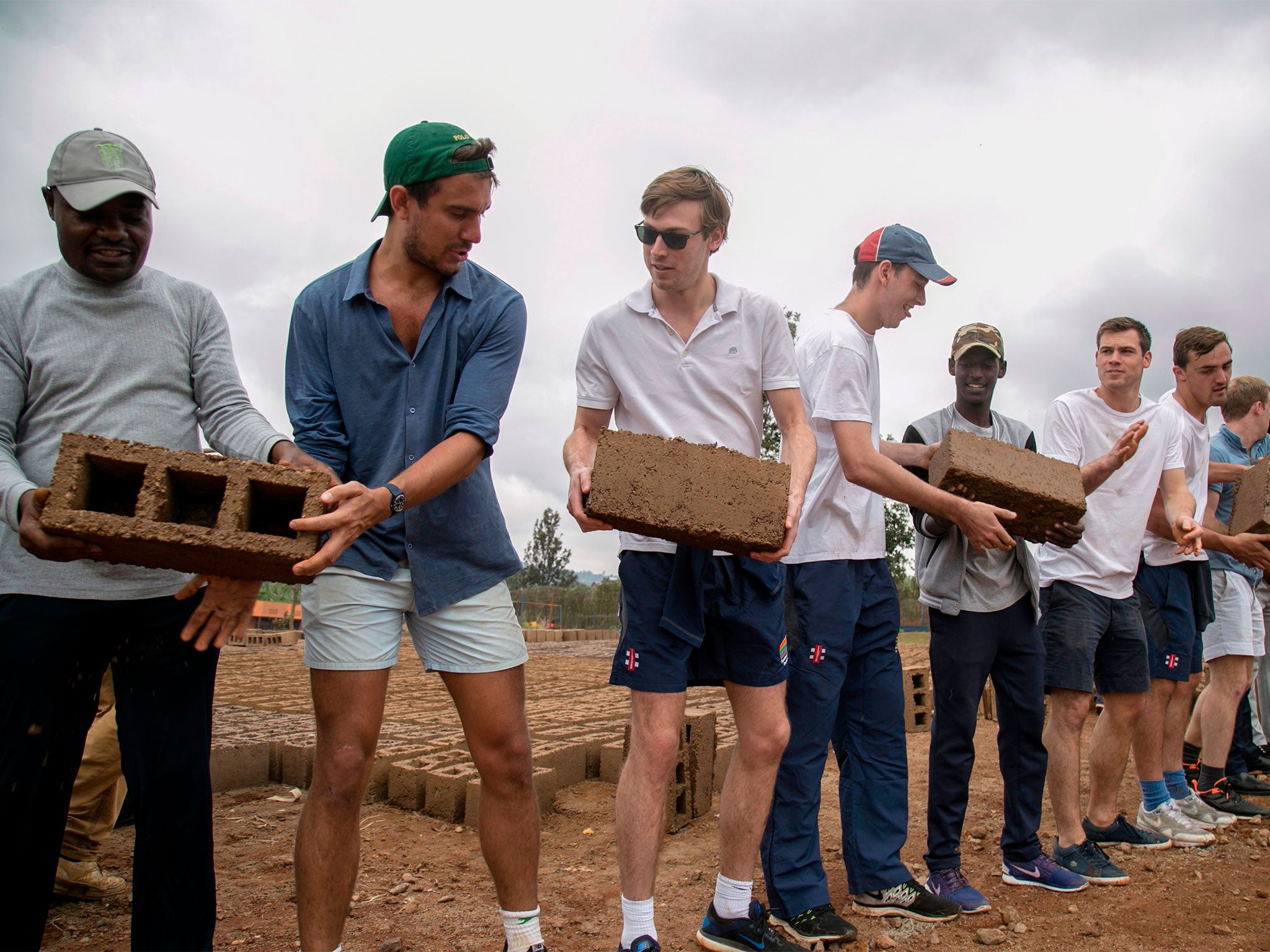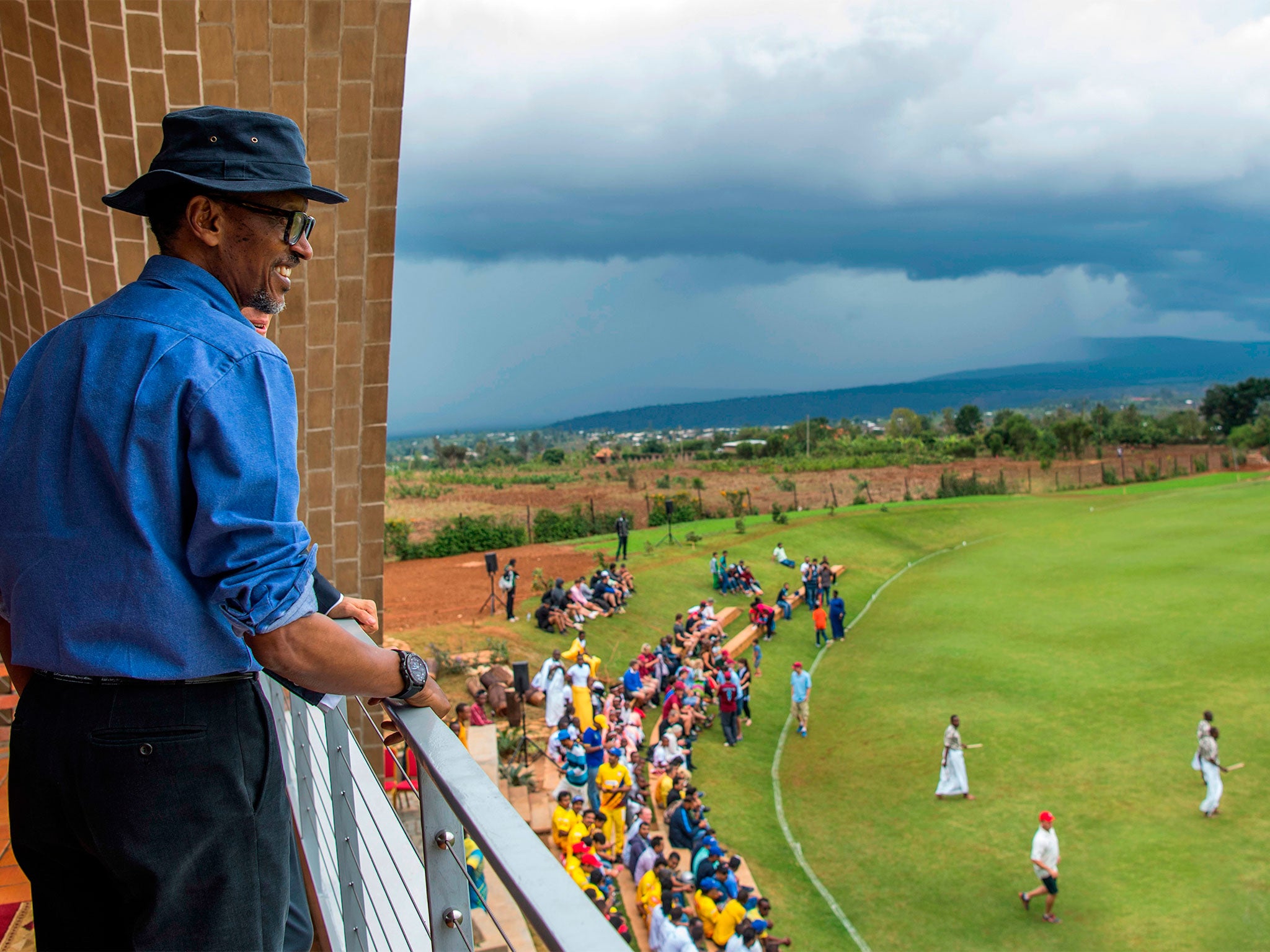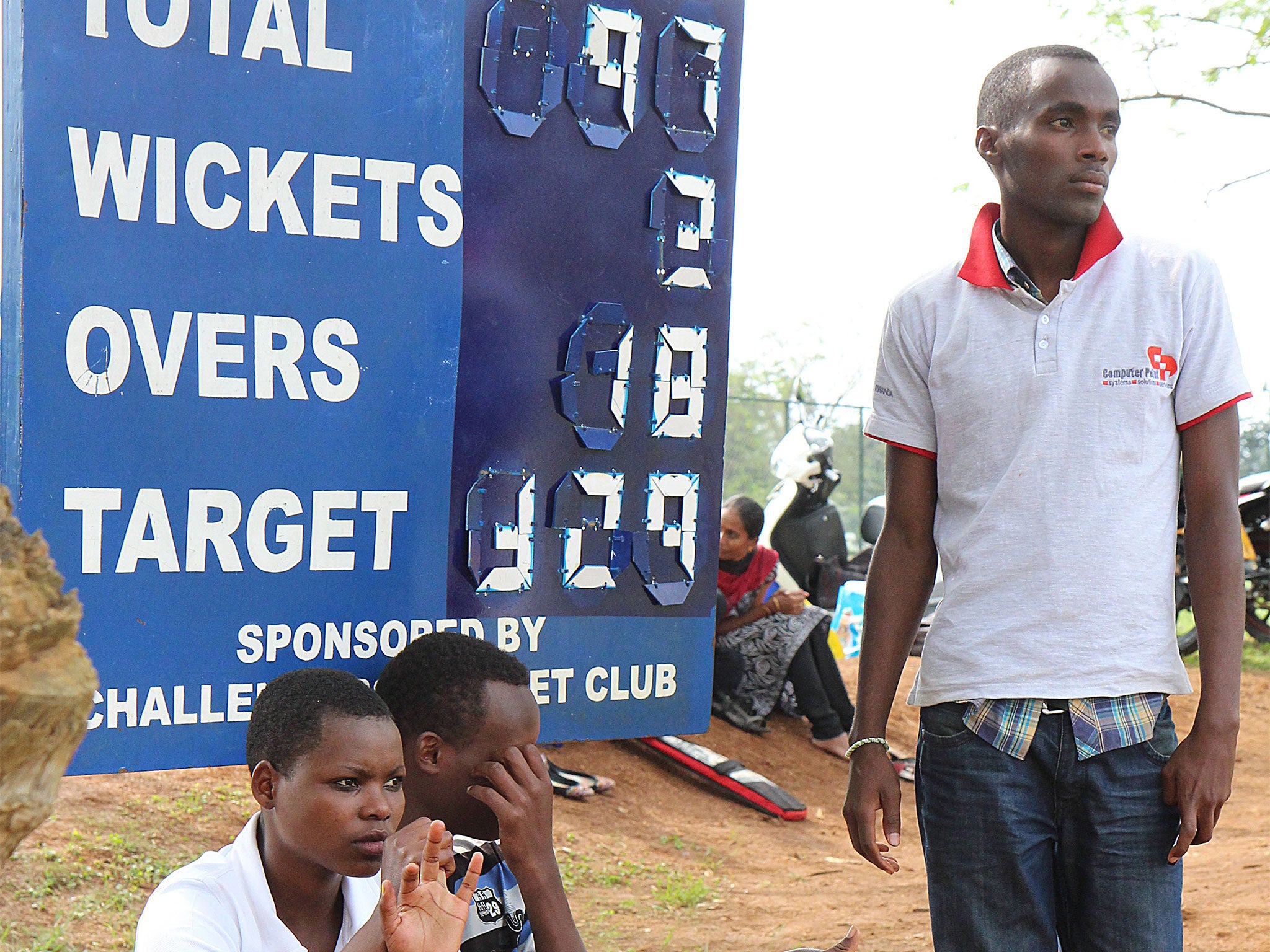Welcome to Rwanda, where a new cricket ground is front-page news as part of a growing following for the sport and its power for good
In the land of a thousand hills, Charles Reynolds discovers that the world's newest cricket stadium is delivering more than just a playing surface

“I’m dreaming. It really is a dream come true.”
Rwanda’s national team captain Eric Dusingizimana is sitting looking out over the newly constructed Gahanga cricket stadium a day before it is to be officially opened by the country’s long-standing President Paul Kagame.
The inauguration marks the end of a remarkable six-year undertaking by British charity the Rwanda Cricket Stadium Foundation who have raised the £1 million required to build the spectacular new home of Rwandan cricket.
As well as captaining the national side, Dusingizimana, who works as a civil engineer, has served as general manager of the RCSF as they constructed ‘the Lord’s of East Africa’ in Gahanga, about half an hour’s drive from the centre of the capital Kigali.

If that title feels a little overblown it is in reality not far off, as down an otherwise unassuming dusty track sits a simple yet stunning ground, with sweeping grass banks for spectators and an elegant three-domed pavilion which mimics both the bounce of a cricket ball and the rolling Rwandan hills that provide its picturesque backdrop.
The pavilion, which will also serve as an HIV testing centre and restaurant in the future is a fantastic feat of engineering, built using 66,000 handmade tiles in layers without using concrete – the same way as Barcelona’s Sagrada Familia although with the added bonus of actually being finished.
It looks out on the only flat piece of land within eyesight – Rwanda’s reputation as ‘the land of a thousand hills’ being richly deserved – and all in all could scarcely be more different from where cricket had been played in the country until now.
Previously Rwanda’s only other cricket pitch was at at Ecole Technique Officielle, the site of a notorious 1994 massacre and the location of the film Shooting Dogs. It is a hugely bumpy field where fielders in the deep have to be wary of losing teeth to balls rearing up on the uneven ground and possessing, in the words of Dusingizimana, “cricket’s real cow corner” – a couple of the animals graze there making occasional sorties around the outfield like a pair of bovine umpires carrying out an inspection of the ground.

In short it is not an ideal location to play cricket, deemed so inadequate that the national side have been forced to play all their games abroad – given the circumstances it is fairly miraculous that the sport has taken off at all in Rwanda.
However cricket has proved a unifying force in a country still feeling the effects of the horrific 1994 genocide, the sport barely played before then but brought back to Rwanda by those returning to their homeland after years in exile in countries like Kenya and Uganda.
Its lack of association to the past has been a crucial factor in its popularity, and has dovetailed perfectly with the President’s aim that the country no longer be divided into Hutus and Tutsis but instead be united as one Rwanda.
Now the first tentative stages of cricketmania are sweeping the country, thanks in part to the President’s presence at the opening of the new ground but also largely as a result of the exploits of charismatic national team captain Dusingizimana who last year became a Guinness World Record holder for the longest cricket net in history, batting for an unbelievable 51 hours straight, becoming something of a celebrity in the process – as well as earning himself sponsorship from a local beer company and catapulting cricket into the nation’s consciousness.
“That was the moment that cricket was really born in this country,” says Alby Shale, RCSF project director. “Everyone was wanting to know what this game was and stopping Eric on the street.”

Shale is the son of former prime minister David Cameron's constituency chairman, Christopher Shale, whose vision of building a new cricket ground for Rwanda inspired the founding of the RCSF when he died unexpectedly in 2011.
He is the charity’s third project director following on from Oli Broom and Ed Pearson, but it is thanks to his relentless drive and determination in organising and fundraising that the construction project has now been completed.
“It feels surreal,” he says on the eve of the inauguration, looking a little worn out by all the last-minute preparations but hugely enthusiastic. “What’s so exciting for me is how this game is really playing a part in the healing process and how this new facility – just two days ago the Rwandan team beat the Kenyan U19s here which was a huge victory for them – is bringing these guys together in perhaps a way that wouldn't have been possible 20 years ago, and it’s that that is truly inspiring.”
Rwanda also holds the women’s record for the longest ever cricket net as well, Cathia Uwamahoro batting for 26 hours straight earlier this year, something that was very important to achieve in Shale’s opinion.

“We decided to break the women’s world record as well because what is really interesting about women’s cricket in this country is that not only does it not have any negative connotations because it wasn't really around before the genocide, but also because men and women play on the same pitch – there was only one pitch – you’ve got this equal playing field in Rwanda which is truly unique I think all over the world.
“It was important to demonstrate that women can do the same thing that men can do and our focus going forward with our community programs is specifically towards women and trying to use cricket to empower them so they can challenge gender stereotypes and gender based violence because cricket has got women on the back pages of Rwandan newspapers and that just doesn’t happen with other sports.”
While the opening of the stadium, with a match featuring Michael Vaughan, Sam Billings and Herschelle Gibbs as well as legendary Kenyan allrounder Steve Tikolo, means the original aim of the RCSF is now complete, this is “just the beginning” according to Shale, with the charity morphing into Cricket Builds Hope, a new enterprise whose mission is to change the lives and long-term prospects of vulnerable young people in Rwanda through cricket.
With Dusingizimana and his female counterpart, the wildly enthusiastic captain of the women’s team Mary Maina, involved in the ongoing project – things are in excellent hands.
Fortunately it seems that, in one of cricket’s newest nations, dreams will continue to come true for quite some time.
Charles Reynolds was a guest of RwandAir. To book visit www.RwandAir.com or call 01293 874922
Join our commenting forum
Join thought-provoking conversations, follow other Independent readers and see their replies
Comments